第7章 EPISTLE DEDICATORY TO ARTHUR BINGHAM WALKLEY(7)
I state the extreme case, of course; but what is true of the great man who incarnates the philosophic consciousness of Life and the woman who incarnates its fecundity, is true in some degree of all geniuses and all women. Hence it is that the world's books get written, its pictures painted, its statues modelled, its symphonies composed, by people who are free of the otherwise universal dominion of the tyranny of sex. Which leads us to the conclusion, astonishing to the vulgar, that art, instead of being before all things the expression of the normal sexual situation, is really the only department in which sex is a superseded and secondary power, with its consciousness so confused and its purpose so perverted, that its ideas are mere fantasy to common men. Whether the artist becomes poet or philosopher, moralist or founder of a religion, his sexual doctrine is nothing but a barren special pleading for pleasure, excitement, and knowledge when he is young, and for contemplative tranquillity when he is old and satiated. Romance and Asceticism, Amorism and Puritanism are equally unreal in the great Philistine world. The world shown us in books, whether the books be confessed epics or professed gospels, or in codes, or in political orations, or in philosophic systems, is not the main world at all: it is only the self-consciousness of certain abnormal people who have the specific artistic talent and temperament. A serious matter this for you and me, because the man whose consciousness does not correspond to that of the majority is a madman; and the old habit of worshipping madmen is giving way to the new habit of locking them up. And since what we call education and culture is for the most part nothing but the substitution of reading for experience, of literature for life, of the obsolete fictitious for the contemporary real, education, as you no doubt observed at Oxford, destroys, by supplantation, every mind that is not strong enough to see through the imposture and to use the great Masters of Arts as what they really are and no more: that is, patentees of highly questionable methods of thinking, and manufacturers of highly questionable, and for the majority but half valid representations of life. The schoolboy who uses his Homer to throw at his fellow's head makes perhaps the safest and most rational use of him; and I observe with reassurance that you occasionally do the same, in your prime, with your Aristotle.
Fortunately for us, whose minds have been so overwhelmingly sophisticated by literature, what produces all these treatises and poems and scriptures of one sort or another is the struggle of Life to become divinely conscious of itself instead of blindly stumbling hither and thither in the line of least resistance.
Hence there is a driving towards truth in all books on matters where the writer, though exceptionally gifted is normally constituted, and has no private axe to grind. Copernicus had no motive for misleading his fellowmen as to the place of the sun in the solar system: he looked for it as honestly as a shepherd seeks his path in a mist. But Copernicus would not have written love stories scientifically. When it comes to sex relations, the man of genius does not share the common man's danger of capture, nor the woman of genius the common woman's overwhelming specialization. And that is why our scriptures and other art works, when they deal with love, turn from honest attempts at science in physics to romantic nonsense, erotic ecstasy, or the stern asceticism of satiety ("the road of excess leads to the palace of wisdom" said William Blake; for "you never know what is enough unless you know what is more than enough").
There is a political aspect of this sex question which is too big for my comedy, and too momentous to be passed over without culpable frivolity. It is impossible to demonstrate that the initiative in sex transactions remains with Woman, and has been confirmed to her, so far, more and more by the suppression of rapine and discouragement of importunity, without being driven to very serious reflections on the fact that this initiative is politically the most important of all the initiatives, because our political experiment of democracy, the last refuge of cheap misgovernment, will ruin us if our citizens are ill bred.